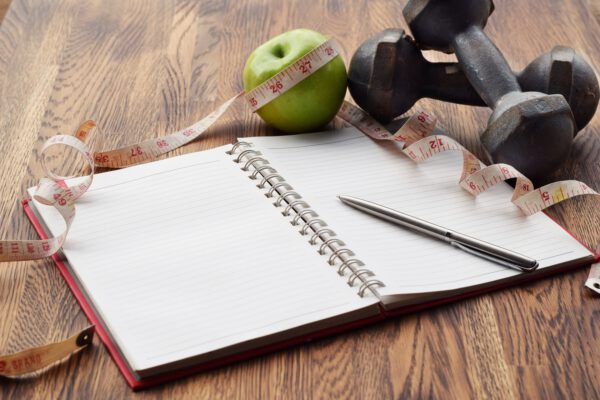3 Tips to Succeed in Your Training and In Your Life
Your training and your life are inextricably intertwined. What benefits one will also benefit the other. In this article, I’ll lay out three tips that you can easily integrate into your lifestyle that will have huge pay-offs, both in the gym and throughout the rest of your life.
A lot of people are enslaved to their devices. Even when they’re at the gym, they carry their phone from one exercise machine to the next. Between each set they grab for it, desperate to reconnect with the beloved screen. Before the next set, they’ll probably consume a couple of Youtube clips and snap off a selfie or two.
This is not the way to engage seriously with your training.
Beyond the gym, technology is negatively impacting family dynamics. Too often when our loved ones are talking to us, we’ve got an eye on YouTube, we’re involved in an SMS message thread or we’re trolling through Instagram. That is not only demeaning to our loved ones - it says that we value our technology more than them.
Here are 7 ways to control your tech environment;
- Turn off your phone when you get home. Believe it or not, you are not that important that you cannot be out of reach for a couple of hours. You can check your messages when the kids are in bed, but until then the phone is a distraction that they don’t deserve.
- Eat your dinner meal together. Have a no technology rule at the dinner table. Initiate conversation. Perhaps you can start by sharing your highlight and lowlight of the day and then invite family members to do the same.
- Listen twice as much as you speak. Give thoughtful consideration to what is being said and respond with empathy and kindness.
- Watch TV sparingly. Only put it on for specific appointment viewing, never to check if there’s anything good on. Three or four nights per week go TV free.
- Rather than filling that old TV time with Netflix or YouTube, schedule time to do non-tech-related activities with your family. Board games such as Scrabble or Cranium are a great way to engage.
- Spend as much time as you can with your family outside. Go for evening walks and soak up the most beautiful time of the day!
- Take up gardening together. There’s something about digging your hands into the earth that is invigorating. It’s also pretty hard to be talking on the phone when your hands are covered in dirt!
A final tip - keep your phone in your gym bag, safely confined to your gym locker!
Keeping a workout journal is an excellent way to improve your training consistency and keep yourself accountable.
A workout journal is simply a place (it could be a journal or an app) where you take note of your workout metrics. This will include your exercises, sets, reps, and weights. You’ll also make a note of the intensity of the session and how you felt during the session.
Here are four benefits of keeping a training journal …
- It keeps you accountable. When you track your goals in writing, you are more likely to stick to your plan.
- It builds motivation. As you continue to fill your journal, a pattern of progress and consistency will develop that builds its own momentum.
- Provides a key analysis tool - you are able to look back over your workouts to identify any plateaus or roadblocks and make adjustments accordingly.
- It reduces injury risk. When you record your thoughts, feelings, and physical reactions to your training, you are far more aware of body signals that may be red fags to potential injury.
Journaling isn’t just beneficial for your workouts.
Getting your thoughts down on paper is a great way to clear your mind. When your head is clear, you are able to be far more productive. Journaling allows you to have that clear mind. The mind’s capacity is about 5 thoughts at one time. Yet we keep it loaded with thousands of thoughts every day.
With journaling, you are able to get down on paper the things you were previously forcing your mind to remember. You’ll then be able to focus your attention on what lies ahead.
There are a number of ways to organize your journaling habits. One that has proven effective is to write your thoughts down under the following categories:
- Gratitude
- Day’s accomplishments
- Lessons learned
- Specific areas of action
A breath workout you should try:
Include time each day to read material that allows you to grow your mind. Specifically, read stuff that improves your psychology. To quote master motivator Tony Robbins, “80% of success is psychology and 20% is mechanics.”
Books about leadership, the power of the mind, and habit building will sharpen your psychology to help you get more out of life.
You don’t have to spend a great deal of time reading each day, but it should be a daily habit. Even fifteen minutes devoted to psychological reading can be hugely beneficial.
- Here are 5 great books to get you started in your daily reading habit:
- Getting Things Done: The Art of Stress-Free Productivity by David Allen
- The One Thing by Gary Keller
- The Compound Effect by Darren Hardy
- First Things First by Stephen Covey
- Eat That Frog by Brian Tracy
I recommend that you also include fitness material in your reading selections. Especially seek out life stories of people who turned their lives around physically. They can be extremely motivating.
The three tips that we’ve just covered will improve your workouts and your life in general. Integrate them into your life over the next week and you’ll be able to experience more productive, enjoyable, and satisfying workouts and a more fulfilling life.
Frequently Asked Questions
To manage technology use effectively, try setting specific times to check your devices, such as after workouts or when your family is not around. Implementing a no-tech rule during meals can also improve family interactions. This helps you focus more on your training and enhances personal relationships.
Leave your phone in your gym bag or locker to minimize distractions during workouts. This will help you concentrate better on your exercises and improve your training efficiency.
Journaling helps track your progress, maintain consistency, and hold yourself accountable. By documenting your workouts and results, you can identify patterns, set realistic goals, and stay motivated.
Engage in activities like evening walks or gardening to spend quality time with family without technology. These activities not only improve family bonds but also promote a healthier lifestyle.
Turning off your phone at home can reduce distractions, allowing you to be more present with your family and engage in meaningful interactions. This can improve your relationships and mental well-being.
The Gymaholic App offers features like workout tracking and planning, which can help you maintain consistency and monitor your progress over time, enhancing your training results.
Eating dinner without technology encourages conversation and strengthens family connections. It allows everyone to share their day and fosters a supportive environment, which is beneficial for emotional well-being.


